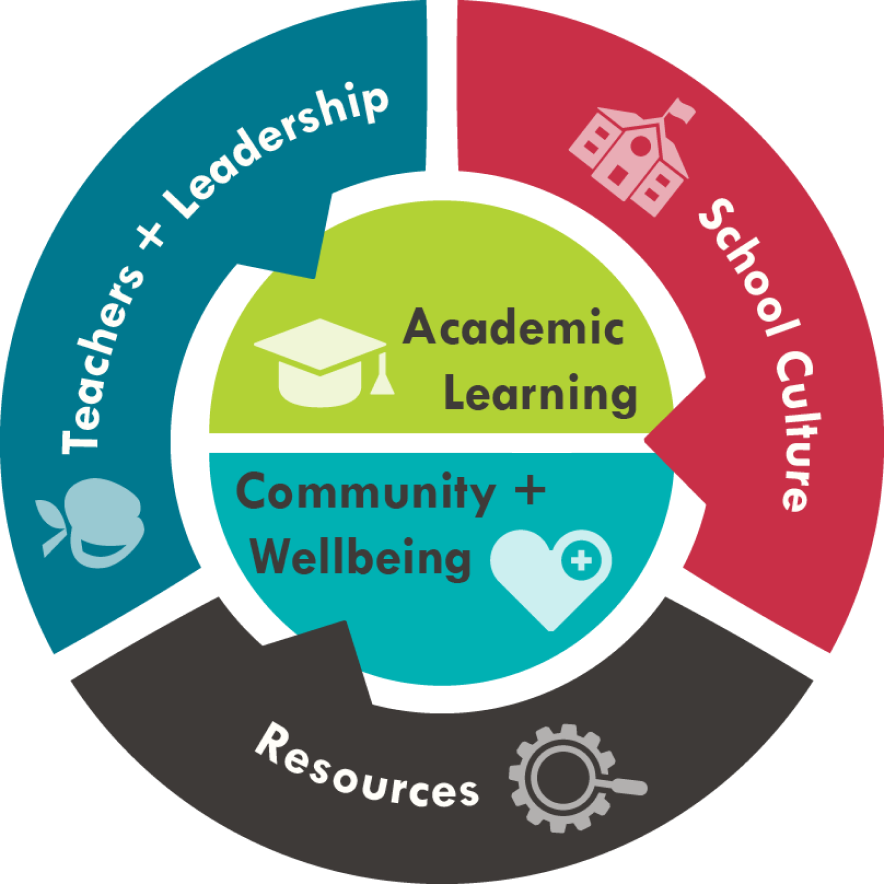A school quality framework with multiple measures that offers a fair and comprehensive picture of school performance

The School Quality Measures Framework aims to describe the full measure of what makes a good school. The three outer categories are essential inputs to school quality that influence the center two key outcomes.
Through a Research-Practice Partnership between Lowell Public Schools (LPS) and the University of Massachusetts - Amherst, the Holistic Assessment for Lowell Schools (HALS) project is reimagining how we measure the quality of LPS schools and the learning experiences of our students.
Starting in the 2022-2023 school year, LPS convened a team of educational leaders and teachers to build off of Lowell's long-time engagement with the Massachusetts Consortium for Innovative Education Assessment (MCIEA). In the upcoming years, the HALS dashboard will operate as a space for Lowell school and district leaders to customize school quality measurement to their specific needs and continuous improvement goals.
The HALS school quality measurement framework retains the five-category structure of the MCIEA framework. The framework has been built around multiple measures, which include academic, social-emotional, and school culture indicators, in order to piece together a fairer and more comprehensive picture of school performance. It consists of five major categories.
Lowell Public Schools (LPS) was an inaugural member of the Massachusetts Consortium for Innovative Education Assessment (MCIEA) when it launched in 2016. The Holistic Assessment for Lowell Schools (HALS) dashboard builds on Lowell's work with MCIEA. Made possible by a Research-Practice Partnership between LPS and the School of Education at University of Massachusetts - Lowell, the HALS project will develop new approaches to school quality measurement and online data display, providing context-embedded data for LPS schools.
Learn More